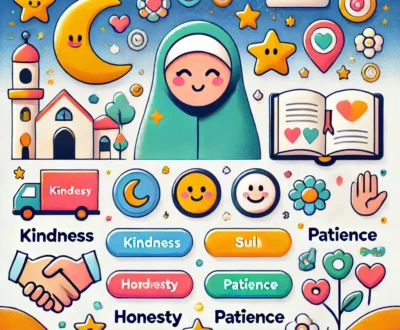The Ultimate Guide to an Islamic Digital Journal for Daily Reflections and Gratitude
- November 2, 2024
- Yaraak Insights
Introduction
In today’s fast-paced world, cultivating gratitude and self-reflection can be a powerful way to find purpose and peace. An Islamic digital journal designed specifically for reflections and gratitude offers a unique way to align these practices with faith. By recording blessings, intentions, and challenges in light of Islamic teachings, believers can foster a deeper connection with Allah, develop a positive outlook, and live with greater mindfulness and intention.
This guide explores the features, benefits, and practical applications of an Islamic digital journal. With a few minutes each day, users can build a steady habit of introspection and gratitude, strengthen their faith, and bring balance and positivity into their lives.
Why Choose an Islamic Digital Journal?
An Islamic digital journal goes beyond the typical gratitude journal. It’s a spiritual tool that aligns personal growth with Islamic principles. Here’s how this journal can support your journey:
- Reflect on Experiences with Faith: Journaling through an Islamic lens encourages users to see everyday moments as opportunities for spiritual growth, reminding them to stay connected to Allah in every situation.
- Practice Gratitude (Shukr): Writing down blessings daily reinforces the principle of Shukr, which cultivates humility, patience, and contentment.
- Strengthen Connection with Allah: This journal serves as a form of dhikr (remembrance of Allah), prompting users to acknowledge Allah’s mercy and guidance.
Key Features of an Islamic Gratitude Journal
An Islamic digital journal offers unique features designed to help you incorporate spirituality into your daily routine. Here’s what you can expect:
- Daily Prompts Inspired by Islamic Teachings
Prompts might ask you to reflect on blessings, acts of patience, or signs of Allah’s mercy in your life. Personalized prompts guide you to deeper, more meaningful reflections. - Qur’anic Verses and Hadiths
Including relevant verses and sayings of the Prophet Muhammad (peace be upon him) brings divine wisdom into your practice. For example, a prompt might include Surah Ibrahim 14:7, reminding us that “If you are grateful, I will certainly give you more.” - Goal-Setting Aligned with Islamic Values
This feature helps you set both spiritual and personal goals, such as improving character, gaining beneficial knowledge, or contributing to your community. You can also set intentions (niyyah) and trust in Allah’s support. - Habit-Tracking with a Focus on Ibadah (Worship)
Track your spiritual practices, like salah, Qur’an recitation, and charity, to maintain consistency in worship and observe your growth. - Weekly or Monthly Reflection Summaries
Summaries of your entries allow you to recognize patterns in your reflections and see how Allah’s blessings manifest over time.
Getting Started: Building a Gratitude Practice
Starting a journaling habit doesn’t have to be overwhelming. Here are some practical steps to help you get started with your Islamic gratitude journal:
1. Set a Regular Time for Reflection
Choose a consistent time each day, perhaps after Fajr or before bed, to write in your journal. Setting aside even five minutes each day can help you focus and be mindful.
2. Start Small and Be Specific
Begin with three things you’re grateful for each day. Instead of general statements, look for specific moments: the warmth of the morning sun, a friend’s kindness, or a feeling of peace after prayer. These details make the practice more meaningful and help you see Allah’s blessings in everyday life.
3. Reflect on Challenges as Opportunities for Growth
In Islam, challenges are often seen as tests or chances to grow spiritually. For example, if you struggled with patience, write about how you tried to stay calm and what you learned. Recognizing challenges as growth opportunities can help you approach difficulties with resilience.
4. Use Visual Cues to Track Progress
If your journal offers habit-tracking or streaks, use these features to stay motivated. A visual calendar highlighting your entries can encourage consistency, and a streak tracker can be a gentle reminder of your commitment.
The Importance of Gratitude in Islam
Gratitude, or Shukr, is central in Islam. The Qur’an emphasizes thankfulness as a path to blessings, as Allah says, “If you are grateful, I will certainly give you more” (Surah Ibrahim 14:7). By practicing gratitude, we not only receive more blessings but also strengthen our connection with Allah.
Benefits of a Daily Gratitude and Reflection Practice
Journaling regularly brings both spiritual and psychological benefits. Here’s what you can gain:
- Mindfulness and Presence: Reflecting daily encourages you to pause, focus on the present, and feel grounded in what truly matters.
- Increased Contentment and Resilience: Recognizing life’s gifts builds contentment and helps you face challenges with trust in Allah’s wisdom.
- Strengthened Faith (Iman): Daily reflection on Allah’s mercy and guidance deepens your connection to Him, enhancing your Iman.
Consistency Tools in an Islamic Digital Journal
A digital journal can offer tools that make it easier to stay consistent:
- Daily Reminders: Notifications can prompt you to reflect each day.
- Streak Tracking for Accountability: Keep track of consecutive days of journaling to stay motivated.
- Inspiring Quotes and Dua Suggestions: Daily reminders or quotes from the Qur’an can enhance the experience, keeping Allah’s presence in your mind.
FAQs About Islamic Digital Journals
- How is an Islamic digital journal different from a regular gratitude journal?
It integrates Islamic values and teachings, like Qur’anic reflections and gratitude as acts of worship, making it a spiritual tool. - Can beginners benefit even if they’re new to journaling?
Absolutely. With beginner-friendly prompts, it’s easy to start small and build a steady habit. - How often should I use the journal?
Daily entries are ideal, but even a few times a week can be transformative. - Can I personalize my journal?
Many digital journals offer customization, so you can adjust prompts, set personal goals, and schedule reminders to fit your lifestyle. - What if I miss a day or two?
Missing days is natural. Just resume when you can, and remember that consistency over time is more important than perfection.
Conclusion
An Islamic digital journal offers more than just a space to write; it’s a tool for spiritual growth, mindfulness, and gratitude. By nurturing a habit of reflection and recognizing Allah’s blessings, you can foster a positive outlook and deepen your faith.
Ready to start? Begin your journey tonight—take five minutes before bed to reflect on three specific blessings you experienced today. With each entry, you’ll be taking a step toward a more mindful, faith-centered life.
Yaraak’s team of specialists combines innovative ideas with extensive experience to deliver exceptional results for Islamic institutions. We focus on building sustainable, meaningful relationships with your community by authentically engaging them through social media. By aligning each strategy with Islamic values, Yaraak helps institutions connect deeply with their audiences, fostering long-term loyalty and impact across digital platforms.
About us and this blog
We are a dedicated digital marketing agency, crafting impactful content strategies tailored to the unique missions of Islamic institutions.
Request a free quote
We offer professional SEO services that help Islamic institutions increase their organic search score drastically in order to compete for the highest rankings even when it comes to highly competitive keywords.
Subscribe to our newsletter!
More from our blog
See all postsRecent Posts
- Virtual Sadaqah Jar: 4 Simple Steps to Start Your Journey of Consistent Giving November 18, 2024
- 10 Powerful Ways Islamic Marriage Counseling Can Transform Your Relationship for the Better November 16, 2024
- Halal Business Directory: The Ultimate Marketplace for Ethical Shariah-Compliant Shopping (2024) November 14, 2024







